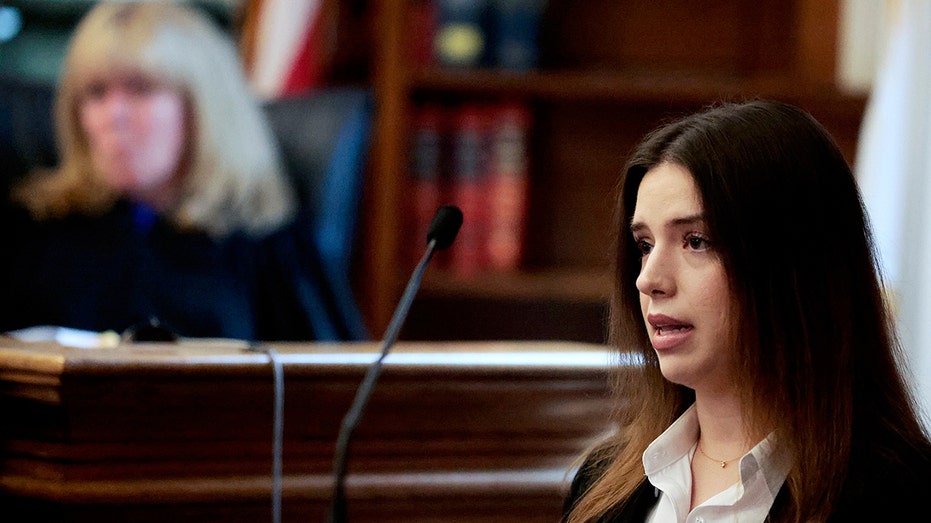Kelly Dever Denies Witnessing Key Figures Near Karen Read’s Vehicle in Controversial Testimony: Expert Analysis
Boston police testimony in Karen Read's trial sparks allegations of coercion amid efforts to challenge O'Keefe investigation

The murder retrial of Karen Read saw a highly charged moment on Monday as her defense team called Boston police officer Kelly Dever to the witness stand, marking a pivotal point in the ongoing legal saga. Dever, who was working with the Canton Police Department the morning John O'Keefe was found dead under a pile of snow, quickly became a hostile witness—her testimony marked by tense exchanges and sharp accusations against the defense.
Previously, Dever had provided the FBI with a statement that she observed key figures—ATF Agent Brian Higgins and then-Canton Police Chief Kenneth Berkowitz—standing near Read's SUV at the police headquarters for what she described as "a wildly long time" before fragments matching Read's taillight were discovered at the crime scene. Higgins’s connection to Read, allegedly involving a flirtatious relationship, has added another layer of intrigue to a case already embroiled in controversy and speculation.
However, on the stand Dever retracted her earlier claim, asserting that evidence presented by federal investigators proved she had left work before Read's Lexus ever arrived at the station. Tensions escalated when Dever accused attorney Alan Jackson and the defense team of attempting to pressure her into giving false testimony, stating, "You threatened to charge me with perjury during our phone call prior to the first trial if I didn't lie on the stand right now." She remained adamant: "I'm telling you, I did not see anything. Factually, I've been provided evidence by a timeline that it is not correct."
Outside the courtroom, Read herself denied that her defense pressured Dever. Expressing frustration, Read told reporters, "We subpoenaed her to testify to what she told other authorities and just wanted her to be as honest with us as she was with them. And today she's now telling us that was a lie." Read further speculated that Dever appeared "a compromised person," suggesting ongoing divisions over law enforcement credibility in the case.
Throughout her testimony, Dever displayed visible frustration, at times huffing and even snapping at Jackson over the mispronunciation of her name, retorting, "Like you can't remember my name, I don't remember." The emotional tension in the courtroom reflected the immense pressure surrounding a trial that has drawn significant public attention and fierce debate both inside and outside the courthouse.
The defense has sought to paint the investigation as riddled with errors, emphasizing that the lead detective was dismissed for inappropriate behavior and highlighting alleged early missteps by the Canton police. Their contention remains that Read's vehicle never struck O'Keefe and that alternative scenarios have not been thoroughly vetted, even positing in the initial trial that Read may have been framed by local law enforcement.
The stakes of Dever's testimony are clear; legal analysts and observers have commented on its potential impact. Prominent criminal defense attorney Mark Bederow characterized the testimony as "a disaster," suggesting that Dever’s demeanor and recanting may have inadvertently bolstered the defense’s argument that the investigation cannot be trusted. "It was a risky move to call her, but her demeanor was so awful that combined with what she admitted telling the feds, it likely helped the defense," Bederow observed.
Conversely, retired judge and Boston College professor Jack Lu described Dever as "a profile in courage," interpreting her decision to recant as a sign of integrity and contending that the defense’s reliance on her testimony signals desperation. The fallout for Dever has been swift, facing criticism from public groups online, some calling for her dismissal from the force in light of her involvement in the trial.
Ultimately, it will be up to the jury to weigh Dever's shifting statements and determine whether they believe her earliest recollections or her most recent corrections on the witness stand. As the trial continues, the credibility of law enforcement witnesses remains at the forefront, ensuring this high-profile case continues to captivate and divide public opinion.




